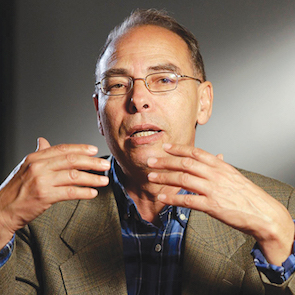Case History: Maâti Monjib
As of May 2019, the trial of Maati Monjib and six co-defendants has been postponed 15 times.
On 28 March 2018, the Court of First Instance in Rabat adjourned the trial of Maati Monjib and other Moroccan HRDs to 27 June 2018.
On 27 December 2017, the trial of human rights defender Maati Monjib and other journalists was adjourned until 28 March 2018 in Rabat court.
After being postponed until 11 October 2017, the trial of Maati Monjib, Hisham Almiraat, Samad Iach, Hicham Mansouri, and Mohamed Elsabr has been postponed again by the Rabat court.
 Maâti Monjib is the President of Freedom Now, an association that works to defend freedom of expression and journalism in Morocco.
Maâti Monjib is the President of Freedom Now, an association that works to defend freedom of expression and journalism in Morocco.
UPDATE: On 28 March 2018, the Court of First Instance in Rabat adjourned the trial of Maati Monjib and other Moroccan HRDs to 27 June 2018
Human rights defenders Mr Maâti Monjib, Mr Hisham Almiraat, Mr Samad Iach, Mr Hicham Mansouri, and Mr Mohamed Elsabr are currently facing the charge of “threatening the internal security of the State”.
Mr Rachid Tarek and Ms Maria Makram face the charge of “receiving foreign funding without notifying the General Secretariat of the government.”
The trial of the human rights defenders is due to take place on 19 November 2015 at the Court of First Instance of Rabat. If the charge of “threatening the internal security of the State” is confirmed, Maâti Monjib, Hisham Almiraat, Samad Iach, Hicham Mansouri, and Mohamed Elsabr face up to five years imprisonment, in accordance with Article 206 of Morocco's criminal code. Rachid Tarek and Maria Makram face a fine of up to 10000 Dirhams (approximately €920) if the charge of “receiving foreign funding without notifying the General Secretariat of the government” is confirmed.
Maâti Monjib, Samad Iach and Mohamed Elsabr have all been banned from travelling. It is reported that the travel ban against Maâti Monjib, who has been on hunger strike, was lifted on 29 October 2015.
On the evening of 13 October 2015 human rights defender Mr Maâti Monjib lost consciousness in front of the headquarters of the Association Marocaine des Droits Humains – AMDH (Moroccan Association for Human Rights) as a result of the hunger strike he began on 6 October 2015.
Maâti Monjib was transferred to Cheikh Zayed hospital in Rabat after he lost consciousness. The human rights defender, who suffers from heart disease and diabetes, had been asked by colleagues to end his current hunger strike but refused to do so. He began the hunger strike on 6 October, in protest against the travel ban that had been imposed on him in September. On 7 October, Maâti Monjib went to the airport to attempt to travel to Norway to attend a conference on investigative journalism, and was prevented from leaving.
Maâti Monjib was banned from travelling on 16 September 2015, when authorities at Mohamed V International Airport did not permit him to board a flight to Spain. Maâti Monjib had intended to travel to Barcelona for a symposium organised by the European Institute of the Mediterranean and Al Jazeera Centre for Studies, entitled “Major Historical Transformations, Democratic Transition, and Key Actors.” The authorities informed him that an official travel ban had been issued against him by the Public Prosecutor's Office and that he would face charges of threatening the security of the state. On 14 September 2015, he was summoned for questioning by the National Brigade for the Judicial Police regarding his human rights work. However, he had not been informed of a travel ban nor of any charges that may be brought against him.
The current hunger strike is the second one Maâti Monjib began in a short period of time. The previous one began on 16 September 2015 in protest against the travel ban he was informed of on the same day by authorities at Mohamed V International Airport, and ended on 20 September 2015.
Front Line Defenders is deeply concerned for the health of Maâti Monjib and urges the authorities in Morocco to immediately lift the travel ban against him, which it believes to be solely motivated by his peaceful work in defence of human rights.
